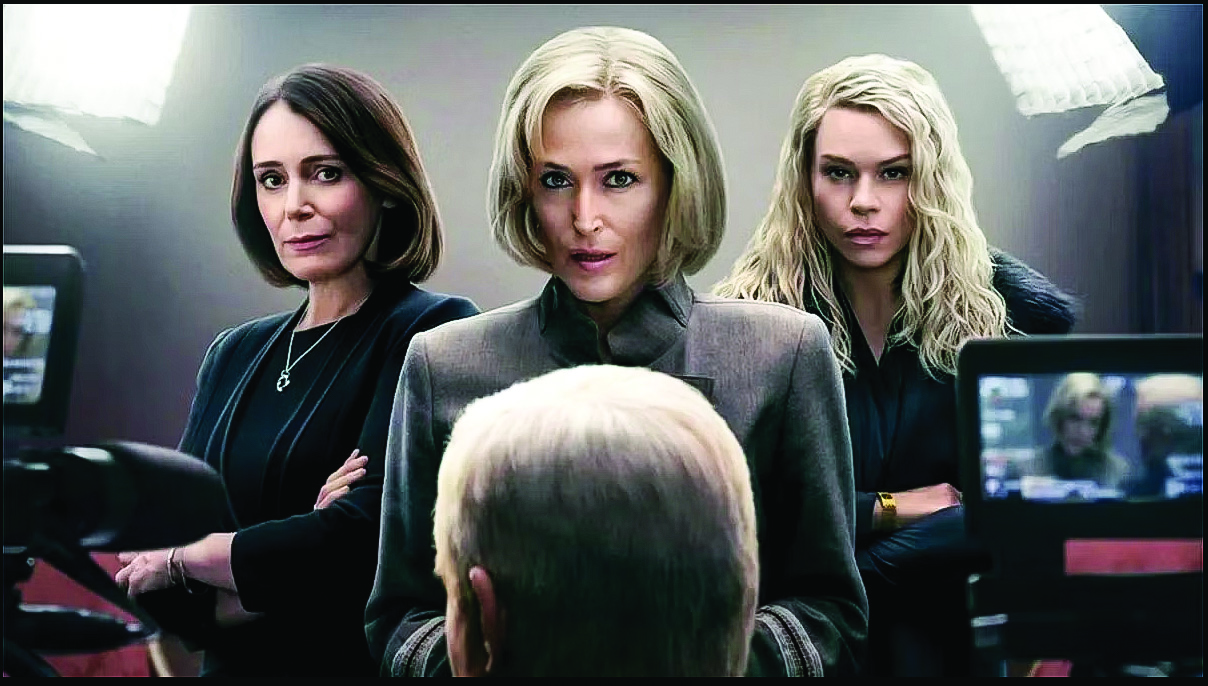Journalists are the storytellers of our society, keeping the world informed and entertained with tales of people and their actions. Their own stories are themselves colourful and fascinating, though they are seldom told. A memorial and two TV shows put the focus on the media recently.
I attended a memorial meeting for veteran journalist Bhaskar Rao as I had good memories of him from my time as a newbie in my first newspaper job. People from the world of media, theatre, film, administration, and politics spoke about their long association with him, and a picture began to form of a far fuller and more creative life than I knew he had led. While they shared their memories of times spent together with our late colleague, the speakers revealed facets of themselves. About their lives, ambitions, and triumphs, and somewhat unknowingly, about career compromises, and passions sacrificed for livelihood, some cherished dreams of being an actor found a stage at a memorial. I thought about the times that I had briefly interacted with various speakers in the past and regretted not getting to know
It didn’t matter – there was a bond among us simply because we shared the same profession. Ties of mutual respect for taking the hard road, of sharing common experiences, of irreverent attitudes. When the speeches were done, we weren’t ready to leave. We raised a toast to our departed colleague and friend. We sang, told tall tales, laughed at others, and laughed harder at ourselves. This is how it is when you are with your tribe.
It struck me as odd however that we were just a couple of women present at the memorial, a rare sight these days. When I joined the profession, media houses had just begun hiring more women and since then our numbers have continued to rise. Many women hold top positions in news organisations around the world. The impact of women journalists can be seen in two movies that are currently streaming. ‘She Said’ is about the New York Times expose of Harvey Weinstein in 2017 that triggered the worldwide ‘Me Too’ movement. The film is based on the book of the same name written by the journalists Megan Twohey (a multiple award-winning investigative journalist) and Jodi Kantor and brings to life the challenges they faced in their pursuit of the story. Their ethical and empathetic treatment of the victims is admirable. As is the determined support of the New York Times in publishing the story.
Scoop is an insider account of how the BBC’s Newsnight programme got the first interview with Prince Andrew, the Duke of York in 2019 about his connection with Jeffrey Epstein, the convicted sex offender. It is based on the book Scoops: Behind the Scenes of the BBC’s Most Shocking Interviews, written by Sam McAlister, the former BBC guest booker who persuaded the prince and his team to agree to the interview. The host of the Newsnight Emily Maitlis and the editor Esme Wren also played pivotal roles in landing the interview. The backlash from his answers in the interview led to the prince being stripped of his royal and military titles.
There are some interesting takeaways from the two films about gender, profession, and professionalism. It’s pertinent that the journalists in both instances were women; this led to establishing an empathetic connection with the female victims of sexual predators. The films underscore the universality of human experiences and the intrinsic value of empathy and understanding within a professional community, transcending gender. They also show how the women journalists – Twohey and Kantor in New York, and McAlister in London steadfastly navigate their professional and personal lives. Not too different from how we do so in New Delhi or Bangalore or elsewhere – with sense and sensibility.
PS: I met Prince Andrew during his 2016 visit to Bangalore at a dinner hosted by a prominent business leader who had recently opened a company in London. His involvement in the Epstein scandal hadn’t yet gained ground and guests gathered on the lawn, eagerly awaiting his arrival. The prince quietly walked in from the side entrance and rather unexpectedly, I was the first to meet him. I forgot to address him as ‘Your Excellency’ as we had been told to do. Our brief chat lasted five minutes, during which he accepted my gift of a book that I had written about the royal city of Mysore. It was too short an encounter to form any impressions about his peccadilloes. Watching his interview on Newsnight, I wondered how clueless he seemed to be. All that power and wealth but neither sense nor sensibility.
Sandhya Mendonca is an author and host of ‘Spotlight with Sandhya’ podcast.

